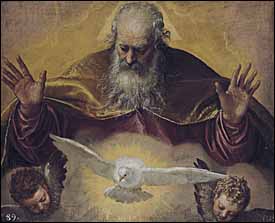Free E-Mail
Bible Studies
Beginning the Journey (for new Christians). en Español
Old Testament
Abraham
Jacob
Moses
Joshua
Gideon
David, Life of
Elijah
Psalms
Solomon
Songs of Ascent (Ps 120-135)
Isaiah
Advent/Messianic Scriptures
Daniel
Rebuild & Renew: Post-Exilic Books
Gospels
Christmas Incarnation
(Mt, Lk)
Sermon on the Mount
(Mt 5-7)
Mark
Luke's
Gospel
John's Gospel
7 Last Words of Christ
Parables
Jesus and the Kingdom
Resurrection
Apostle Peter
Acts
The Early Church
(Acts 1-12)
Apostle Paul
(Acts 12-28)
Paul's Epistles
Christ Powered Life (Rom 5-8)
1 Corinthians
2 Corinthians
Galatians
Ephesians
Vision for Church
(Eph)
Philippians
Colossians,
Philemon
1
& 2 Thessalonians
1 & 2 Timothy,
Titus
General Epistles
Hebrews
James
1 Peter
2 Peter, Jude
1, 2, and 3 John
Revelation
Revelation
Conquering Lamb of Revelation
Topical
Glorious Kingdom, The
Grace
Great Prayers
Holy Spirit, Disciple's Guide
Humility
Lamb of God
Listening for God's Voice
Lord's Supper
Names of God
Names of Jesus
Christian Art
About Us
Podcasts
Contact Us
Dr. Wilson's Books
Donations
Watercolors
Sitemap
 Paolo Veronese (Calairi, 1528-1588), 'The Eternal Father' (oil on canvas), Hospital Tavera, Toledo, Spain. |
In the Farewell Discourses, Jesus is clear that the Holy Spirit, the Paraclete, will be sent after his death, resurrection, and ascension. One of the questions that has divided Christians historically is who will send the Spirit -- the Father or Jesus. Look at the passages in question:
"And I will ask the Father, and he will give you another Counselor...." (14:16)
"But the Counselor, the Holy Spirit, whom the Father will send in my name...." (14:26a)
"When the Counselor comes, whom I will send to you from the Father, the Spirit of truth who goes out from the Father...." (15:26)
"Unless I go away, the Counselor will not come to you; but if I go, I will send him to you." (16:7b)
In a related passage from Luke, Jesus says at his ascension:
"I am going to send you what my Father has promised...." (Luke 24:49)
There is no real conflict, since Jesus and the Father are one in purpose and action. It is common to attribute an action to the authorizing authority, not to those who implement the action. For example, Herod Antipas beheaded John the Baptist -- that is, he authorized it, but he didn't perform the act itself (Mark 6:16). It is said that Solomon built the temple, but didn't do the labor himself (1 Kings 6:2).
As simple as this might seem, this issue has divided the Western Church from the Eastern Church for nearly two thousand years. The issue involves the term filoque, Latin for "and (from) the Son."
The original Greek version of the Nicene Creed, adopted by the Council of Nicea in 325 AD, and amended by the Council of Constantinople in 381 AD reads:
"And [we believe] in the Holy Ghost,
the Lord and Giver-of-Life,
who proceeds[1006] from the Father,
who with the Father and the Son together is worshipped and glorified...."
However, the Western version, used in the West since the sixth century, and adopted by the Pope in 1014 AD (without agreement by the Eastern Church), reads:
"And [we believe] in the Holy Spirit, the Lord, the
giver of life,
who proceeds from the Father and the Son,
who with the Father and the Son is adored and glorified...."
 Entire study is available in paperback, Kindle, and PDF formats. |
In other words, the Western version says the Holy Spirit comes forth from the Father and the Son, while the Eastern version affirms only that the Holy Spirit comes forth from the Father.
Though the issue of papal primacy and stubborn pride are the main cause for the schism between the Eastern and Western Churches in 1054 AD, the issue of the filoque has contributed to the conflict, and is an obstacle to modern attempts at reunification.
[1006] The word "proceeds" or "proceedeth" in the Nicene Creed is taken from John 15:26, and is a translation of the Greek verb ekporeuomai, "to come forth from, come/go out, proceed" (BDAG 308, 2).
Copyright © 2025, Ralph F. Wilson. <pastor![]() joyfulheart.com> All rights reserved. A single copy of this article is free. Do not put this on a website. See legal, copyright, and reprint information.
joyfulheart.com> All rights reserved. A single copy of this article is free. Do not put this on a website. See legal, copyright, and reprint information.
 |

|
In-depth Bible study books
You can purchase one of Dr. Wilson's complete Bible studies in PDF, Kindle, or paperback format -- currently 48 books in the JesusWalk Bible Study Series.
Old Testament
- Abraham, Faith of
- Jacob, Life of
- Moses the Reluctant Leader
- Joshua
- Gideon
- David, Life of
- Elijah
- Psalms
- Solomon
- Songs of Ascent (Psalms 120-134)
- Isaiah
- 28 Advent Scriptures (Messianic)
- Daniel
- Rebuild & Renew: Post-Exilic Books
Gospels
- Christmas Incarnation (Mt, Lk)
- Sermon on the Mount (Mt 5-7)
- Luke's Gospel
- John's Gospel
- Seven Last Words of Christ
- Parables
- Jesus and the Kingdom of God
- Resurrection and Easter Faith
- Apostle Peter
Acts
Pauline Epistles
- Romans 5-8 (Christ-Powered Life)
- 1 Corinthians
- 2 Corinthians
- Galatians
- Ephesians
- Philippians
- Colossians, Philemon
- 1 & 2 Thessalonians
- 1 &2 Timothy, Titus
General Epistles
Revelation
Topical
